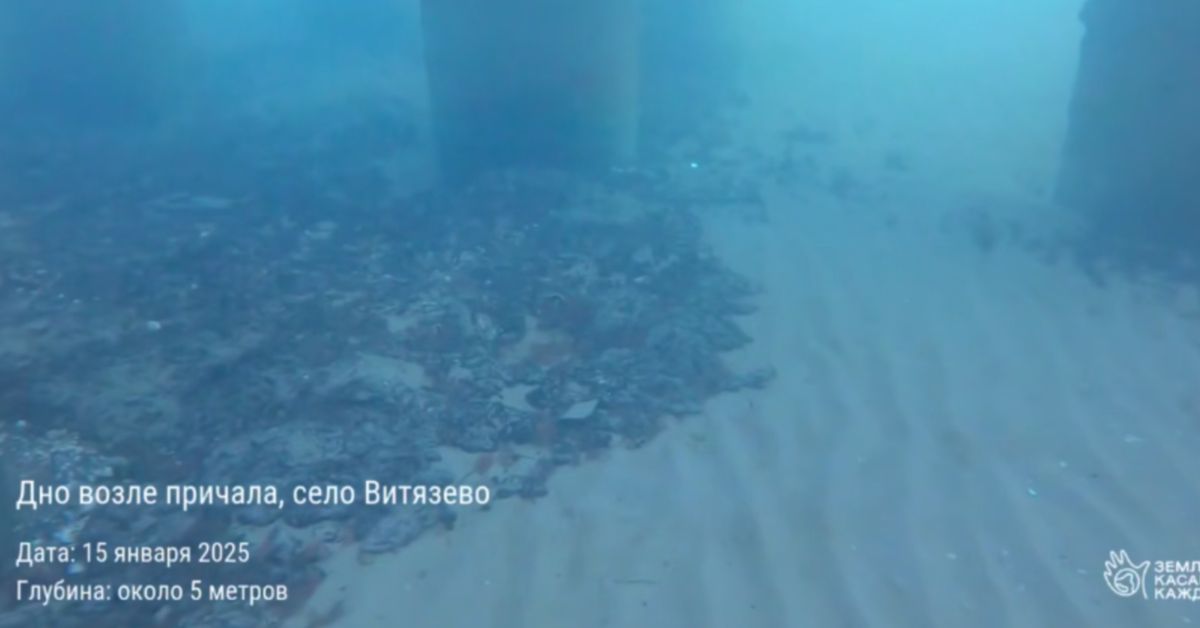In RAN, the oil spill in the Black Sea is described as the ecological disaster of the century

The oil spill in the Black Sea following the sinking of two "Volgoneft" class tankers is the most serious ecological catastrophe in Russia since the beginning of the century, stated Viktor Danilov-Danilyan, scientific director of the Institute of Water Problems at RAN, in an interview with Kommersant. He indicated that the oil could reach the shores of Romania, Bulgaria, and Turkey.
Quote: "This is the first time oil is spilling in such large quantities. In my opinion, this is the most serious ecological disaster in Russia since the beginning of the 21st century. It is an unprecedented event," noted the scientist. He remarked that the diesel fuel spill in Norilsk in 2020, which led to a federal emergency declaration by Vladimir Putin and caused damage estimated at $2 billion, is incomparable to the current situation, as that incident was localized and the consequences were managed swiftly.
The event is a devastating blow to the ecosystem, Danilov-Danilyan added: "The death of tens of thousands of birds, numerous dolphins, and significant losses in coastal flora and fauna. In such an environment, even in saltwater, virtually nothing can survive." The removal of 200,000 to 500,000 tons of contaminated soil will lead to a reconfiguration of the coastline. "This will mean huge losses for the entire tourist infrastructure and will incur significant expenses related to the necessary works," emphasized the scientist.
According to Danilov-Danilyan's forecasts, by the end of January, the pollution could reach Odessa. Although the main current flows past the Crimean Peninsula, as he stated, "tongues" of oil are affecting the Opuk Nature Reserve, Feodosia, Koktebel, Sudak, Yalta, Balaklava, Sevastopol, and Yevpatoria.
The scientist believes that such consequences could have been avoided: "At the very least, it was unwise to use vessels that should have been retired for unsuitability over 20 years ago. River-sea class vessels should not be allowed to sail in winter maritime conditions."
Danilov-Danilyan also criticized the response to the aftermath of the accident: "Serious efforts to eliminate the consequences only began on the ninth or tenth day after the accident. For the first week, there were only volunteers present at the site of the tragedy."
Context: This represents the most serious criticism of the events in the Kerch Strait from the Russian scientific establishment. In the initial days, officials and propaganda created the illusion that authorities were doing everything possible to mitigate the aftermath of the disaster. Only the captains of the sunken vessels have been arrested (one sent to pre-trial detention, the other under house arrest), which raises questions about accountability for the continued operation of vessels built in the 1960s and 1970s.
Only on January 9, 26 days after the disaster, did Vladimir Putin state that efforts made to "minimize damage" were "clearly insufficient."
Just two days after the accident, fragments of oil began to wash ashore along the Krasnodar region near Anapa. Later, oil surfaced in settlements across the entire southern coast of Crimea, and by mid-January, it reached Yevpatoria.
Video:




